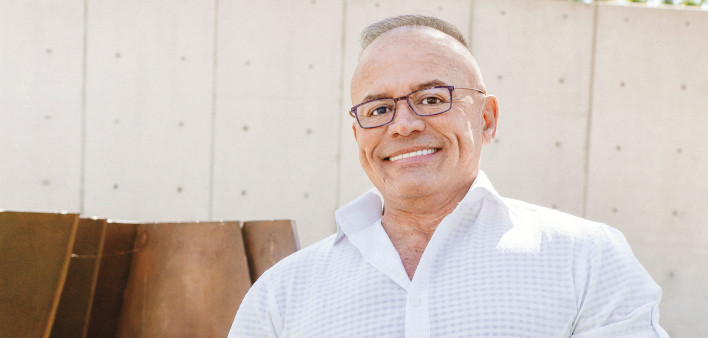“There’s wisdom with age, but there’s a lot more wisdom with age and HIV,” says Nelson Vergel. Like many long-term survivors, he initially considered his HIV diagnosis a death sentence. But despite the odds, the Venezuelan immigrant refused to give up.
Vergel tested positive for the virus in 1987, three years after moving to the United States. “I arrived to this country and had a lot of dreams and plans,” says the Houston resident.
His diagnosis compelled him to become a certified HIV counselor. A chemical engineer during the day, Vergel volunteered at Houston’s main HIV clinic at night.
The virus ultimately caused him to experience HIV-associated wasting. But he bulked up with the help of anabolic steroids. “I not only felt better but also started to look like I didn’t have HIV,” Vergel says.
Heartened by his results, he decided to raise awareness among doctors about the positive effects of these drugs on people living with HIV. He did extensive research on the synthetic hormones and created detailed fact sheets that he sent to physicians.
“We were able to reverse wasting in the early ’90s,” he explains. “That brought us a few years to get to 1996, when the protease era came in.”
He delivered lectures across the country and in 1994 cowrote Built to Survive, a guide to anabolic therapies, nutrition and exercise.
That same year, he founded the Program for Wellness Restoration (PoWer) to help improve the quality of life of people living with HIV.
Vergel is also an important advocate for salvage therapy. These treatments are the last resort for individuals like him who develop multidrug resistance.
Although Vergel has been undetectable for five years, he still has a low CD4 count. He is known as an immunologic nonresponder (INR), a person with limited or no recovery of T cells despite viral suppression.
Vergel is currently one of the driving forces behind an activist coalition pushing for the development of immune-boosting therapies in an effort to reduce the health risks of INRs.
And he practices what he preaches. Case in point: He takes Trogarzo, a cloned antibody intravenously infused every two weeks, which was approved earlier this year by the Food and Drug Administration for the treatment of multidrug-resistant HIV among people whose current regimen is failing.
“Long-term survivors have a lot of knowledge as a community,” Vergel says. “Somebody could tap into the power we have. We really are useful and still relevant.”







5 Comments
5 Comments